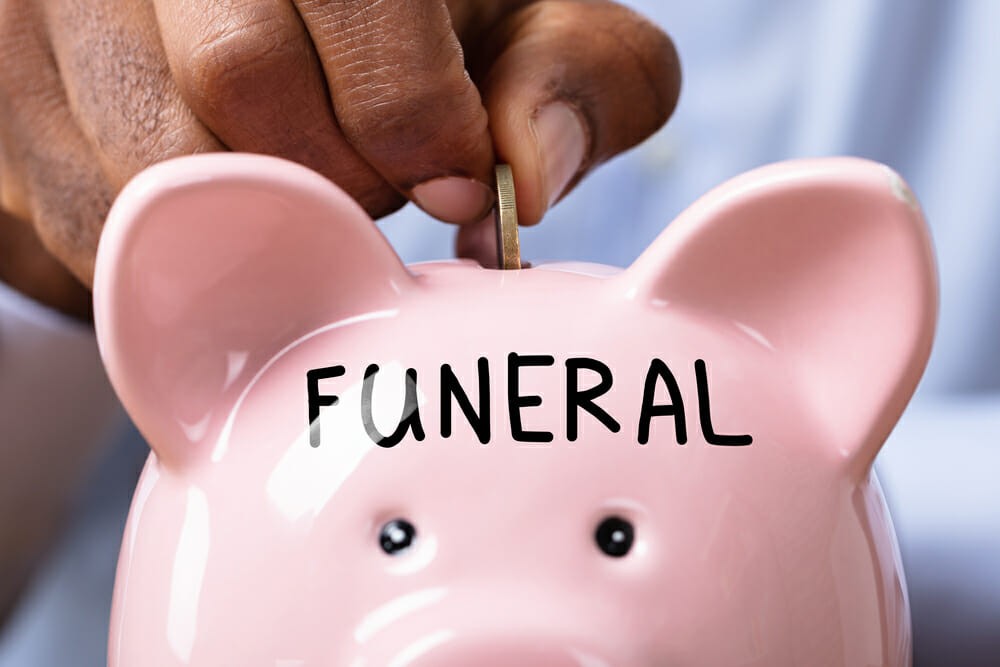
{Read in 6 Minutes} As a Trusts and Estates attorney, I deal with people dying all the time. I mean, not as much as a funeral director would, but it is a big part of my job. When people write Wills, they are often concerned with making sure that their final wishes are respected. And after people die, Executors and Administrators often have to put these plans (or lack thereof) into place.
One of the most common concerns that people raise when doing their estate planning is not so much stating their preferences (ie burial, cremation, green funerals, etc.), but rather who is going to pay for these expenses, and even more importantly, how. Absent any sort of prior planning, what normally happens is somebody will come forward and pay the funeral costs. Usually, this is a family member or a close friend, or perhaps the Executor or Administrator might wind up doing this (although that person usually also falls into one of the prior two categories). This person would advance the costs and then submit a claim against your Estate, which would be paid at a later date.
Although in general, probate in New York is quick and efficient, the funeral creditor still needs to wait for the Surrogate’s Court to issue Letters to the Executor and the Administrator. The Executor or Administrator first needs to collect assets before they can write a check to reimburse the claim. Even under the best-case scenario, this could be a matter of a few weeks before someone can be reimbursed. This may not be a big deal for some people, but it could be for others, particularly people who don’t have this type of cash lying around or have financed funeral costs on credit cards with high-interest rates. The cost of a funeral in New York can be significant, particularly if the person wants to purchase an ornate casket and have a burial as opposed to less expensive options.
So for those people who are looking to find ways to avoid burdening someone with this cost, let me offer three suggestions:
1. Prepay one’s own Funeral.
New York, like many states, allows people to prepay their funeral costs. When doing so, one can select exactly what they want, from the broad strokes down to the minute details. If you want a particular type of casket, you can select it. If you want certain types of music played or if you want a certain number of days for an open casket viewing, you can select those things as well. Many New Yorkers choose to do this, although certainly not anywhere near a majority of them. If you are inclined to do this, you can contact the funeral home or undertaker of your choice and work it out with them. New York State provides protections to ensure that your prepayment actually covers the funeral costs. The funds won’t be lost if, say, the funeral home goes out of business or is sold to another company.
Like with anything else, there are pros and cons to prepaying your funeral. The New York State Department of Health has an excellent pamphlet explaining the particulars available on their website.
2. Create an account that is automatically payable upon death to the person who will be laying out these expenses.
Many people choose to do this as an informal way to get money quickly into the hands of the person who is going to be paying these expenses. How would someone do this? Well, they can go to the bank of their choice and open up a joint account or create a bank account that is payable upon death to this named person. They will get it a lot more quickly than they would from the Executor or Administrator of the Estate. Why? Because the Executor or Administrator cannot even file the proceeding, serve its Court and obtain Letters until they have a death certificate. Even if that goes very quickly (say, a couple of weeks) it’s still a longer wait than just receiving a death certificate and closing or collecting the account. This would also work with naming someone as a direct beneficiary on a retirement account or a life insurance policy.
The only caveat for payable upon death accounts is that one cannot obtain a death certificate until the final arrangements are complete. So they’re still going to have to wait at least a little while after you die to get reimbursed. That would not be a concern with a joint account.
3. Give Someone Cash in Advance
If this is a real concern and one absolutely trusts that the person who’s going to be handling the funeral arrangements is not going to run off with the money, there’s no reason that a person cannot give them some cash in advance. This means that the person can simply write a check or hand money to the person, so that when the time comes, they will already have cash in hand and are spending the deceased person’s money on their funeral, as opposed to advancing it out of their own funds.
Of course, this may be more attractive to someone who sees their death closer on the horizon (i.e. someone who has a terminal diagnosis) than it would be to someone who has a longer life expectancy, such as a young adult.
As you can see, each of these choices has advantages and drawbacks, and no one solution is right for everyone. A little bit of education about one’s options — and then making the selection that is most appropriate for them — is incredibly important, and can also help the person who is arranging one’s funeral to avoid burdensome costs.
For more information on this topic, please contact me.

